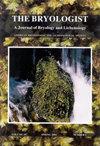三种毛茛科植物配子体和孢子体表皮蜡的比较分析
IF 1.5
4区 生物学
Q4 PLANT SCIENCES
引用次数: 4
摘要
摘要一般来说,关于苔藓的表皮蜡以及Polytrichaceae的数据很少。此外,这些研究大多只研究配子体。为了更好地了解蜡的成分及其生态作用,我们比较了巴西物种Pogonatum pensilvanicum、Polytrichadelphus pseudo-polyrichum(特有)和Polytrichum juniperinum配子体和孢子体的表皮蜡的形态和化学成分。蜡用二氯甲烷提取,衍生化,并使用气相色谱-质谱联用进行分析。总蜡含量以µg cm–2表示,化合物基于质量碎片模式进行鉴定。用扫描电子显微镜对表皮蜡的形态进行了研究。在多叶配子体和杯状体上观察到较厚的蜡层,范围为0.2至0.3µg cm–2。对于孢子体,蜡层不均匀,刚毛上的蜡层为0.01至0.04µg cm–2,荚膜上的蜡膜为0.07至0.2µg cm-2。虽然在两代中都发现了烷烃和脂肪酸,但伯醇仅在叶片中检测到,醛类和酯类仅在孢子体中检测到。核糖核酸酶-10-醇在杯状体和荚膜中含量较高。膜蜡在配子体和孢子体中占优势。根据生命阶段的不同,在蜡成分中检测到定性和定量差异。据我们所知,这是首次对孢子体部分进行单独研究。我们假设帽状体中较高的蜡含量可能有助于保护包膜;然而,这个想法还需要得到证实。此外,我们的数据支持了以前的说法,即蜡成分的生物合成机制存在于最早的陆地植物中,保护配子体和孢子体。本文章由计算机程序翻译,如有差异,请以英文原文为准。
Comparative analysis of cuticular waxes of the gametophyte and sporophyte of three species of Polytrichaceae
Abstract. Few data are available about cuticular wax of mosses, in general, as well as for Polytrichaceae. In addition, most of these studies investigated only the gametophyte. To improve understanding of wax components and their ecological roles, we compared the morphology and the chemical composition of cuticular waxes of the gametophyte and the sporophyte of the Brazilian species Pogonatum pensilvanicum, Polytrichadelphus pseudopolytrichum (endemic), and Polytrichum juniperinum. The waxes were extracted with dichloromethane, derivatized and analyzed using gas chromatography coupled with mass spectrometry. The total wax content was expressed in µg cm–2 and the compounds were identified based on mass fragmentation patterns. The morphology of epicuticular waxes was studied by scanning electron microscopy. Thicker wax layers were observed over the leafy gametophyte and the calyptra, ranging from 0.2 to 0.3 µg cm–2. For the sporophyte, the wax layer was not homogeneous, ranging from 0.01 to 0.04 µg cm–2 over the seta and from 0.07 to 0.2 µg cm–2 over the capsule. While alkanes and fatty acids were found in the two generations, primary alcohols were detected only in the leaves, and aldehydes and esters were found only in the sporophyte. Nonacosan-10-ol was more abundant in the calyptra and capsule. Film waxes were predominant in the gametophyte and sporophyte. Qualitative and quantitative differences were detected in wax composition according to life phases. As far as we know, this is the first time that the sporophyte parts were investigated separately. We hypothesized that the higher wax content in the calyptra may contribute to the protection of the capsule; however, this idea needs to be confirmed. Besides, our data support previous statements that the biosynthetic machinery for wax components was present in the earliest land plants, protecting both the gametophyte and the sporophyte.
求助全文
通过发布文献求助,成功后即可免费获取论文全文。
去求助
来源期刊

Bryologist
生物-植物科学
CiteScore
2.40
自引率
11.10%
发文量
40
审稿时长
>12 weeks
期刊介绍:
The Bryologist is an international journal devoted to all aspects of bryology and lichenology, and we welcome reviews, research papers and short communications from all members of American Bryological and Lichenological Society (ABLS). We also publish lists of current literature, book reviews and news items about members and event. All back issues of the journal are maintained electronically. The first issue of The Bryologist was published in 1898, with the formation of the Society.
Author instructions are available from the journal website and the manuscript submission site, each of which is listed at the ABLS.org website.
All submissions to the journal are subject to at least two peer reviews, and both the reviews and the identities of reviewers are treated confidentially. Reviewers are asked to acknowledge possible conflicts of interest and to provide strictly objective assessments of the suitability and scholarly merit of the submissions under review.
 求助内容:
求助内容: 应助结果提醒方式:
应助结果提醒方式:


